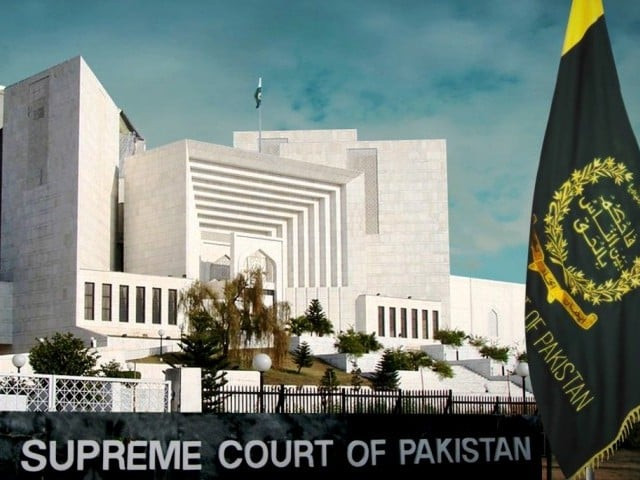No law can curtail courts’ jurisdiction, rules SC
Apex court issues five-page judgment authored by Justice Mansoor in insurance claim case

The Supreme Court has held that jurisdiction of constitutional courts – Supreme Court and high courts – cannot be curtailed through an ordinance (simple legislation).
"It is axiomatic and by now a judicial cliché that sub-constitutional legislation cannot curtail or abridge the jurisdiction of the constitutional court. Legislature, being the creature of the Constitution cannot take away the jurisdiction of a constitutional court conferred by the
Constitution,” says a five-page judgment authored by Justice Syed Mansoor Ali Shah while adjudicating a legal question regarding the scope of appeal provided under Section 124 of the Insurance Ordinance, 2000.
Justice Manzoor Ahmad Malik and Justice Sayyad Mazahar Ali Akbar Naqvi were part of bench.
Section 124 (1) says that the decision of the tribunal on any application shall be final and shall not be questioned in any court or before any other authority. Section 124 (2) states that any party aggrieved by a decision of the tribunal may, if the amount of the claim in dispute or the penalty prescribed, as the case may be, is not less than Rs100,000, prefer an appeal to the high court within a period of 30 days from the date of such decision.
The order says that the ordinance is a sub-constitutional legislation and cannot control the constitutional remedy available under Article 199 of the Constitution.
"While the constitutional courts may consider the legislative object and purpose of a statute, still they cannot shut their doors to an aggrieved person who invokes the constitutional jurisdiction of the court under Article 199 of the Constitution. This well settled constitutional principle loudly resonates through our jurisprudence,” says the order.
Facts
The respondent Muhammad Rizwan, who is a policy holder, filed an application for the recovery of insurance claim and liquidated damages under his Crop Insurance Policy against a private insurer before the insurance tribunal under the ordinance. In the course of these proceedings, the right of the insurance company to file its written reply was closed vide order dated March 28, 2018 of the tribunal.
This order was challenged by the company before the high court by invoking the constitutional jurisdiction under Article 199 of the Constitution.
The writ petition was dismissed by the high court on May 30, 2018 on the grounds that alternate remedy of a statutory appeal was available against the said order under Section 124 (2) of the Insurance Ordinance, 2000.
The court notes that the tribunal order against the insurance company through which the right to file a written statement has been denied, does not fall within the purview of Section 124 (2) of the ordinance and can only be challenged by invoking the constitutional jurisdiction of the high court under Article 199 of the Constitution.
"It is then for the constitutional court to examine whether such a petition meets the requirements of Article 199 and requires interference in the light of the established jurisprudential principles that guide a constitutional court.”
It further adds that the constitutional court may also consider the decision in the overall scheme of the ordinance under which it arises and gives due deference to the legislative object and purpose.
The order held that constitutional jurisdiction under Article 199 of the Constitution can be invoked to challenge miscellaneous decisions (interim orders) passed during the course of proceedings before the tribunal covered under Section 124(1).
The court set aside the tribunal as well as high court orders against insurance company.
The court also directed both parties to appear before the tribunal on July 20, when the petitioner, insurance company, will file its written statement and the tribunal shall proceed further and decide the matter strictly in accordance with the law definitely before the close of this year.



















COMMENTS
Comments are moderated and generally will be posted if they are on-topic and not abusive.
For more information, please see our Comments FAQ